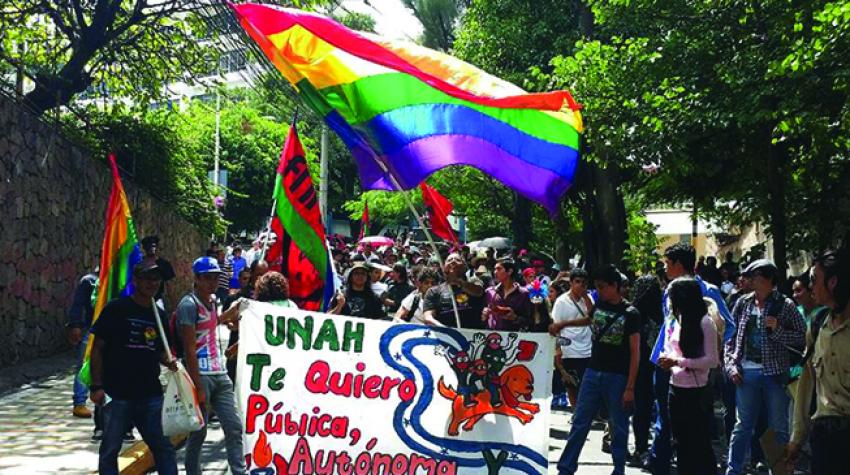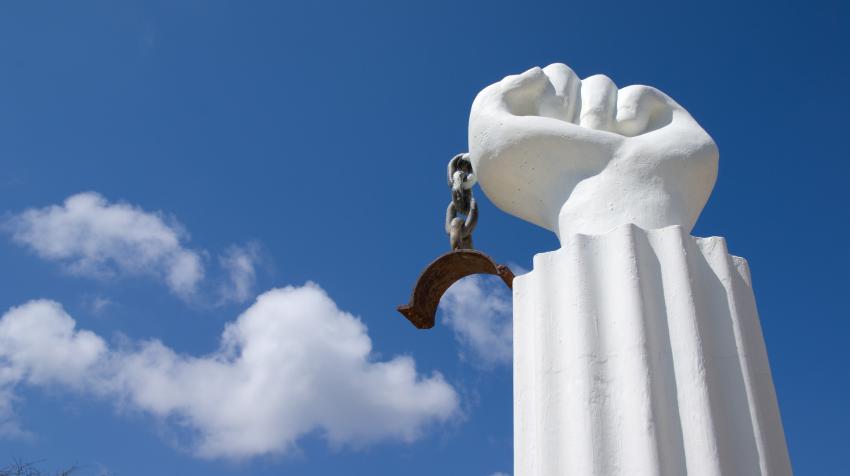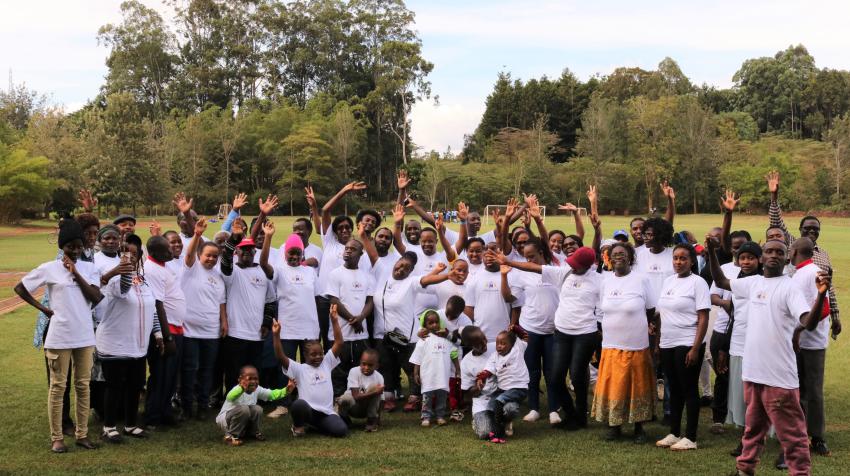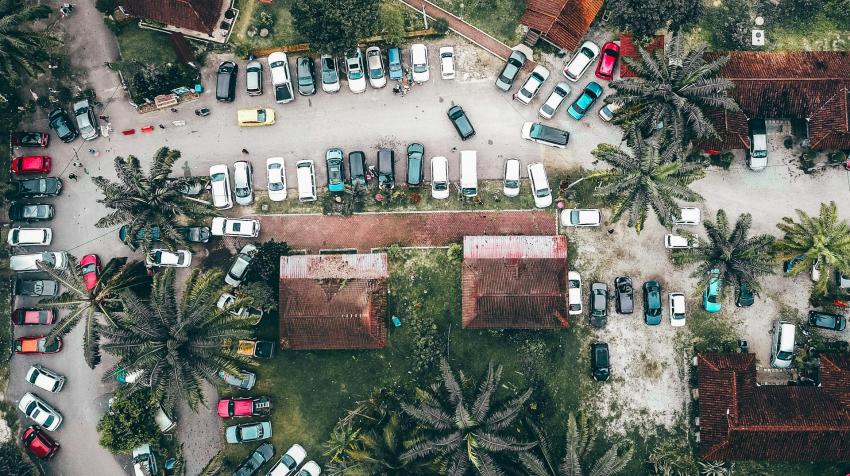October 2017, No. 3 Vol. LIV 2017, Prevention
“Since wars begin in the minds of men, it is in the minds of men that the defences of peace must be constructed.”
Constitution of UNESCO
The International Scenario
How can we seek social justice and peace amidst widespread corruption, rising military expenditure, the systematic violation of human rights and a preponderance of predatory business interests?
Since the adoption of the Universal Declaration of Human Rights in 1948, there has been widespread consensus that “recognition of the inherent dignity and of the equal and inalienable rights of all members of the human family is the foundation of freedom, justice and peace in the world”. “Peace not only is the absence of conflict, but also requires a positive, dynamic participatory process where dialogue is encouraged and conflicts are solved in a spirit of mutual understanding and cooperation”, states the Declaration and Programme of Action on a Culture of Peace, adopted in 1999, while underlining the “need to eliminate all forms of discrimination and intolerance”, pointing to deep- rooted inequalities, embedded in social historical constructions, that call for structural, behavioural and attitudinal change.
Fostering a culture of peace through education was clearly established as a priority, thus recognizing the right to education as an enabler of other rights, standing on the assumption that it can promote a set of values, attitudes and modes of behaviour, allowing people to “resolve any dispute peacefully and in a spirit of respect for human dignity and of tolerance and non-discrimination”. The declaration points to other fundamental aspects, such as economic, social and environmental justice; gender equality and democratic participation, including emphasis on democratic principles and practices at all levels of formal, informal and non-formal education.
In June 2000, the inspiring Earth Charter was launched, reiterating the above-mentioned principles and incorporating provisions that emphasize ecological integrity and respect for nature and Mother Earth. The Charter specifically refers to the importance of protecting the rights to freedom of opinion, expression, peaceful assembly, association and dissent, as well as integrating into formal education and life-long learning the knowledge, values, and skills needed for a sustainable and non- violent way of life.
These longstanding commitments now form the basis underpinning the United Nations Sustainable Development Goals (SDGs), including SDG 16 on peaceful and inclusive societies and SDG 4 on inclusive and equitable quality education, target 4.7 of which prioritizes education for sustainable development, human rights and peace.
Notwithstanding these frameworks, the outlook for the prevention of conflict remains bleak. The 2016 Report of the Secretary-General on the work of the Organization (resolution 71/1), in the section entitled “Maintenance of international peace and security”, points out that political leaders are far from ensuring peaceful and equitable environments that respect the rule of law, and that the diversion of resources from development to war continues. Atrocities are taking place involving children, and increasing numbers of people are forced to flee their homes, as armed conflicts and violent extremism persist.
The Latin America Context
The international conventions, declarations, charters and agendas mentioned previously are fully embraced by the Latin American States, which, in fact, played a crucial role in the adoption of the 2016 Declaration on the Right to Peace proposed by the Human Rights Council. Eight Latin American States voted in favour and none against or in abstention. Furthermore, the region has its own constituted agreements, such as the Inter-American Democratic Charter. The latter articulates the mutually reinforcing relationship between the enjoyment of human rights and strengthened and participatory democracies. Similar to other instruments, it also underlines the fundamental role of education in awareness-raising and meaningful participation in decision-making processes. It is worth noting that, according to the Global Initiative to End All Corporal Punishment of Children,1 all Latin American States, except for Guatemala and Panama, have legislation prohibiting corporal punishment in schools, while ten countries prohibit corporal punishment in all settings, including at home (Argentina, Bolivia, Brazil, Costa Rica, Honduras, Nicaragua, Paraguay, Peru, Uruguay and Venezuela).
According to the Regional Observatory of Conflict, a joint initiative of the United Nations Development Programme (UNDP) and Fundación UNIR, conflicts in the region are especially related to weak state institutions, widespread poverty and extreme inequality, limited levels of citizen participation, and non-recognition of identities.2
Furthermore, multiple forms of discrimination persist in the region, including racial and ethnic discrimination, often leading to conflict and violence. Most unfortunately, there is also an increasing level of gender discrimination in the region, with alarming rates of femicide.
Data shows that among the 25 countries with the highest rates of femicide in the world, 14 are in Latin America and the Caribbean (LAC).3 The region also has very high rates of violence against the LGBTQ community, although it has some of the most progressive laws for LGBTQ equality and protection. It is of extreme concern, then, to see regressive measures on gender being taken in some Latin American countries, where reference to gender is being deleted from education plans and school curricula. In Brazil, authorities have effected this change at the national level, as well as in many of its states, based on the pejorative reframing of gender equality as ‘gender ideology’. In Peru, the Government wishes to implement a gender sensitive curriculum, in line with SDGs 4 and 5, but is suffering intense resistance by conservative segments of its population, who are leading a campaign known as “don’t interfere with my children”.
These are just a few examples of a broader trend towards polarization on social and political issues in Latin America, with diminished tolerance for dissent, and a dangerous rise of a ‘culture of hatred’, often fuelled by sections of the mainstream media. This is further evidenced in a series of recent incidents of student repression. Severe conflicts have arisen between authorities of the National Autonomous University of Honduras and its students, leading to the criminalization of their acts of civil disobedience. In Mexico, students being trained to be teachers at rural schools are especially targeted, with the emblematic disappearance of 43 students in Ayotzinapa, in 2014, who are still missing. Other cases of student repression related to peaceful protests in defence of public education, increased financial aid and the right to participate in policymaking have been witnessed in Brazil, Chile, Colombia and Paraguay.
As pointed out in a 2016 CIVICUS Report, civil society organizations (CSOs) and human rights defenders (HRDs) are suffering legal and administrative barriers, restrictions on the exercise of the freedom of association, and the intimidation and targeted assassination of activists and HRDs. This is despite international, regional and national legal frameworks that acknowledge the fundamental rights of freedom of association, peaceful assembly and expression. The report underlines that “two pressing and connected issues further affect the quality of civic space in LAC: government corruption and the influence of predatory business interests”,4 particularly those of the extractive industries, agribusiness and large-scale construction projects.
Strengthened Democracies, Participation and the Right to Education: Building Blocks for Justice, Equality and Peaceful Resolution of Conflict
Strengthened democracies, increased and meaningful social participation, and the full realization of the right to education are common denominators across human rights and peace conventions and resolutions, at both the regional and international levels. As previously discussed, structural causes of violence, conflict and unrest relate to increasing levels of inequality and wealth concentration, whereby in 2017, eight billionaires own as much as the poorest half of the world´s population,5 as well as persisting multiple forms of discrimination and weak or non-existing levels of participation and other associated threats to civic space. All groups and persons must be able to participate under equitable conditions in public debate and decision making, if justice is to be effectively promoted, thus addressing unequal distribution of power.6
The possibility of participating in conditions of parity implies the existence of horizontal relationships and the promotion of a culture of dialogue, capable of acknowledging dissent without resorting to violence. This must be at the heart of any attempt to promote equality and peaceful resolution of conflict, as well as a culture of peace. Brazilian educator Paulo Freire was seminal in setting out the nexus between participation and education, which comprises dialogue, awareness-raising, critical thinking and action-reflection, situated in a social and historical context, where “reading the world precedes reading the word”.7
The right to education is, thus, a clear cornerstone for equality and peace, be it in formal or non-formal settings, in as much as it promotes critical thinking, solidarity, a culture of dialogue, debate and participation, horizontality, the recognition of differences and plurality, the overcoming of all forms of discrimination that are historically and culturally entrenched, and the possibility of leveraging structural change.
One must ask: what are Governments prioritizing? In 2016, the world’s military expenditure amounted to an estimated $1.69 trillion, while spending on children’s education in low- and middle-income countries, for example, was $1.2 trillion,8 and the donor financing gap in these countries to provide pre-primary, primary and secondary education is estimated at $39 billion per year, even if domestic budgets continue to increase. Clearly, a shift away from military spending towards human rights and sustainable development, would point to a much-needed change in political will and prioritization.
Yet military expenditures pale in comparison with the amount held in tax havens. One conservative estimate stands at $7.6 trillion, or 8 per cent of the world’s wealth—with 30 per cent of Africa’s wealth being held in offshore havens.9 A wider analysis places the amount at $24-36 trillion,10 more than enough to pay for quality public services, including education, for everyone on the planet.
In Latin America, social movements, CSOs and HRDs have a historic legacy and much of what has been achieved in the region, in terms of rights, dignity, justice and peace, is the result of their long-term struggles and mobilizations. Indeed, the SDGs offer a unique setting for empowering civil society in its struggles to challenge the root causes of injustice, including the current economic model that concentrates wealth and places profit over people, the persisting and entrenched forms of discriminations and the shrinking space for participation. It is a global agenda, involving all peoples and nations, and committing them to common principles, goals and targets, while fostering broad-based civil society alliances, across continents and sectors, which mobilize solidarity and mutual collaboration on structural issues that need to be addressed.
Notes
1 Global Initiative to End All Corporal Punishment of Children, “Progress towards prohibiting all corporal punishment in Latin American and the Caribbean”, Analysis (London, 2017). Available from http://www.end-corporalpunishment.org/assets/pdfs/legality-tables/Latin-America- and-Caribbean-progress-table-commitment.pdf.
2 Roderick Brett, Curso: Conflictos y Construcción de Paz en América Latina (United Nations Development Programme, Panama, 2014). Available from http://www.latinamerica.undp.org/content/rblac/es/home/library/democratic_governance/curso_conflictos_paz.html.
3 UN Women, “Take five: fighting femicide in Latin America”, February 15 2017. Available from http://www.unwomen.org/en/news/
stories/2017/2/take-five-adriana-quinones-femicide-in-latin-america.
4 Inés M. Pousadela, “Threats to civic space in Latin America and the Caribbean”, Report (Johannesburg, CIVICUS, 2016), p. 2. Available from http://civicus.org/images/ThreatsToCivicSpaceInLACountriesEN.pdf.
5 OXFAM, “An economy for the 99%: it’s time to build a human economy that benefits everyone, not just the privileged few”, Briefing paper, January 2017. Available from http://policy-practice.oxfam.org.uk/publications/an-economy-for-the-99-its-time-to-build-a-human-economy- that-benefits-everyone-620170.
6 Nancy Fraser, “Recognition without ethics?”, Theory, Culture and Society, vol.18, No. 2-3 (1 June 2001), p.p. 21-42. Available from http://journals. sagepub.com/doi/abs/10.1177/02632760122051760.
7 Paulo Freire and Donaldo P. Macedo, “Literacy: reading the word and the world”, 1998. Available from https://resources.oncourse.iu.edu/access/ content/user/mikuleck/Filemanager_Public_Files/L501/Unit%201%20Definitions/Freire%201998.pdf.
8 The International Commission on Financing Global Education Opportunity, “The Learning Generation: investing in education for a changing world”, Report [New York, 2016], p. 3. Available from http://report.educationcommission.org/report/.
9 Gabriel Zucman, The Hidden Wealth of Nations: The Scourge of Tax Havens (Chicago and London, University of Chicago Press,2015), p. p. ix, 3; Available from http://gabriel-zucman.eu/hidden-wealth/. Tax Justice Network, “Tax havens”. Available from https://www.taxjustice.net/faq/ tax-havens (accessed 15 August 2017).
10 Ibid.
The UN Chronicle is not an official record. It is privileged to host senior United Nations officials as well as distinguished contributors from outside the United Nations system whose views are not necessarily those of the United Nations. Similarly, the boundaries and names shown, and the designations used, in maps or articles do not necessarily imply endorsement or acceptance by the United Nations.




